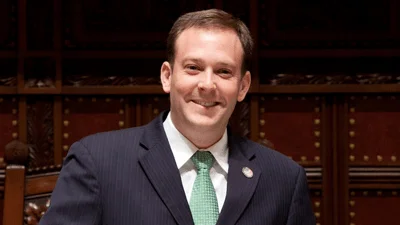Chang Hao, a rural preacher from Zhenxiong, Yunnan, has filed an appeal against the first-instance judgment of the Zhenxiong Court in his case of "provocations and causing trouble." He contends that the judgment is flawed due to unclear facts, insufficient evidence, incorrect application of law, and significant procedural violations. On May 20, 2024, he appealed to the Intermediate People’s Court of Zhaotong City, Yunnan Province.
On May 14, 2024, the Zhenxiong County People’s Court sentenced Chang Hao to one year and one month in prison. The preacher was arrested on April 14, 2023. Upon receiving the verdict notice on May 14, 2024, Chang Hao immediately filed an appeal through his attorney after leaving the court with his family and church members.
The appeal seeks to overturn the criminal judgment (2023) Yun 0627 Xin Chu No.1151 (Criminal First Instance No. 1151) issued by the Zhenxiong County People’s Court on May 14, 2024. Chang Hao requests a not guilty verdict based on several arguments:
Firstly, he argues that there is no evidence proving his subjective criminal intent. The initial judgment claimed that he harbored grievances against society due to physical disability and livestock farming failures. However, Chang asserts that these events occurred many years ago and have no bearing on his recent online activities.
Secondly, Chang claims that existing evidence does not demonstrate that his online posts caused harm under criminal law. He maintains that his posts did not insult others or disrupt social order significantly enough to meet legal criteria for provocation.
Thirdly, Chang criticizes the prosecution for failing to present key electronic data in court as required by law. Instead of presenting actual electronic data during cross-examination phases of trial proceedings - such as original storage media - prosecutors provided inspection records and screenshots which do not qualify as valid evidence under current regulations.
Fourthly; according to Chang; errors were made regarding applicable laws since his actions did not violate Article 293 nor other relevant statutes pertaining provocations/trouble-making cases handled by Supreme People's Court/Procuratorate interpretations respectively.
Additionally; he highlights procedural violations including non-public hearing despite case nature demanding openness per Article188 Criminal Procedure Law provisions plus investigation agency misconducts like seizing unrelated items without search warrants thereby affecting fairness adversely.
In summary, due to an ambiguous factual basis and inadequate evidential support - coupled with misapplications of the laws and procedural breaches during the first-instance trial - Chang Hao sincerely hopes the second-instance judiciary delivers a just ruling ensuring an equitable justice system that functions properly.





